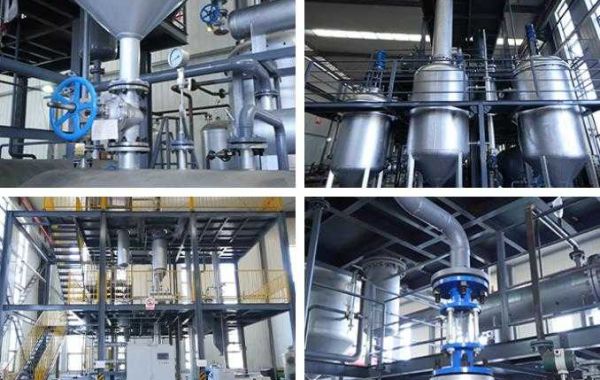The answer, like the engine itself, requires a closer look at the intricate workings of the industry. While the environmental benefits of engine oil recycling are undeniable, ensuring the economic viability of these facilities is essential for their long-term success.
Challenges to Profitability
Collection and Transportation Costs: Gathering used oil from dispersed locations and transporting it to recycling plants can be expensive. Optimizing collection routes and exploring partnerships with auto repair shops can help mitigate these costs.
Processing Costs: The re-refining process requires specialized equipment and skilled labor, adding to operational expenses. Investing in efficient technologies and optimizing the recycling process can lead to cost savings.
Fluctuating Oil Prices: The price of virgin oil can impact the market value of recycled oil. Developing strategies like long-term contracts with oil companies or focusing on niche markets with a consistent demand for high-quality recycled oil can provide stability.
Strategies for Economic Success
Government Incentives: Government support through subsidies, tax breaks, or grants can significantly improve the financial viability of recycling plants.
Public-Private Partnerships: Collaboration between government agencies and private companies can share resources and expertise, leading to a more efficient and cost-effective recycling system.
Exploring New Markets: Recycled oil can be used for various applications beyond automotive lubricants. Expanding into industrial lubricants, marine oils, or even feedstock for producing new lubricants can create new revenue streams.
Focus on Quality and Performance: High-quality recycled oil that demonstrably performs as well as virgin oil can command a premium price in the market. Investing in quality control measures and promoting the performance benefits of recycled oil can attract a wider customer base.
A Sustainable Future for Engine Oil Recycling
By implementing these strategies, engine oil recycling plants can move towards a more sustainable economic model. This not only ensures the long-term viability of the industry but also fosters a circular economy where resources are used efficiently and waste is minimized. As the world shifts towards a more sustainable future, engine oil recycling plants have the potential to become not just environmental heroes, but also economic engines, driving a cleaner and more resource-efficient future for our transportation needs.








